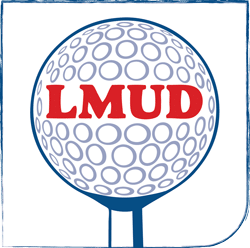Amid Holiday Festivities, Please Protect Your Pipes

As published in Lake Travis View, week of December 5, 2019.
Amid Holiday Festivities, Please Protect Your Pipes
Mmmmm! Turkey, mashed potatoes with gravy…and of course, pie! We’re all looking forward to our holiday feasts surrounded by family and friends, but as a local water and wastewater provider, we ask you to PLEASE consider what you are putting down your drains once the plates are cleared from the table. Fats, oils, and grease (known as “F.O.G.”) are the enemy of our sewer system causing blockages overtime as they build up in the pipes meant to carry liquids and solubles to the local wastewater treatment plant. What you put in your garbage disposal also needs to be considered since the appliance is not designed to shred up certain types of food items. And of course, with extra guests using the toilets, hide the wet wipes or post a friendly reminder not to flush them – these too clog pipes and no one wants to call a plumber during festivities!
It’s almost magical watching all the discarded food scraps disappear as you push it off plates and into the sink where the flow of the water aided by the power of the garbage disposal carries it off to somewhere else. But we never look at it this way. We just want it gone. We’re tired. We want to relax. Cleanup is a matter of convenience…until a clog occurs. Then we’re running around trying to find that plunger, hoping it’s a quick fix so we can just finish up! Don’t say we didn’t warn you! Here are a few tips to help ensure those invaluable pipes remain unrestricted and flowing year-round:
Proper Disposal of Fats, Oils, Grease (F.O.G.)
Typically a byproduct of cooking, fats, oils, and grease (F.O.G.) harm the pipes attached to our drains similar to the way they clog our arteries. The EPA estimates that approximately 47 percent of sewer backups are grease-related. F.O.G. can be found in many types of food including meat fats, salad dressing, shortening and lard, butter and margarine, food scraps, gravy and sauces, dairy products, and baking goods.
Instead of pouring items containing F.O.G. down the drain, follow these tips:
- Scrape F.O.G. and food scraps from trays, plates, pots, pans, utensils, grills and cooking surfaces into a disposable container or directly into your trashcan.
- If you have F.O.G. left in a pot or skillet after cooking, let it cool and then pour into a disposable container. Soak up any left in the pan by wiping it with a paper towel or newspaper. You can simply throw it in your trash or freeze it first to solidify and minimize leaking.
- Use a strainer over your drain to catch food scraps then dump it in the trash.
- Most F.O.G. can be safely reused if you strain out the solids. Consider storing it in a clean container and then use it for cooking later. There are many other creative uses for F.O.G. – search the internet!
- For larger quantities, there are places that will recycle grease and used cooking oil for you. Contact your local Recycle & Reuse Drop-Off Center for details.
Foods Unfriendly to Garbage Disposals
In addition to avoiding greasy, oily foods from going down your drains, minimize the use of your garbage disposal. Some items can harm the appliance while others shouldn’t enter our sewer system:
- Fibrous, stringy, starchy food, such as banana peels, celery, potato peels, and green beans can get wound around the grinder plate causing it to minimize in efficiency or become jammed.
- Things you can’t cut with a knife, like bones or fruit pits.
- Abrasive materials, such as eggshells and coffee grounds. They just pile up and cause a sludgy mess within the grinding chamber. They’re great for compost though!
- Pasta and rice, which swells with water and can also stay stuck in the grinding chamber. It may be the cause of that smell emitting from your sink in the morning!
The 3 Ps
While we’re at it, another drain down which all kinds of things are thrown is your toilet. Wastewater from the kitchen sink, the shower, the washing machine, and yes, the toilet all go to the same place for processing and cleaning. For the same reason we don’t want food scraps and other insolubles down the sink drain, avoid throwing anything but the three Ps (pee, poo, and toilet paper) into the toilet.
Our Pipes Connect Us All
Even if improper disposal doesn’t cause a clog within your home, it may still restrict the flow in pipes between your neighborhood and your community wastewater treatment plant. The water you used to push the food scraps down the drain may have been enough to get it across your property line, but once it enters the main sewer lines, it intermingles with whatever your neighbors and your neighbor’s neighbors discarded. Over time, food scraps mix with other insolubles like hair and wet wipes and congeal to form what is known in the wastewater industry as “fatbergs” preventing water from flowing freely throughout the system. On behalf of your local water provide, help us keep water costs low for you by helping us keep our entire wastewater system running smoothly!
Wishing you a happy and clog-free holiday season!
Written by Stephanie Threinen, Public Information Liaison for LMUD. Earl Foster is the General Manager for LMUD.


 You are now being redirected to the WaterSmart page.
You are now being redirected to the WaterSmart page.